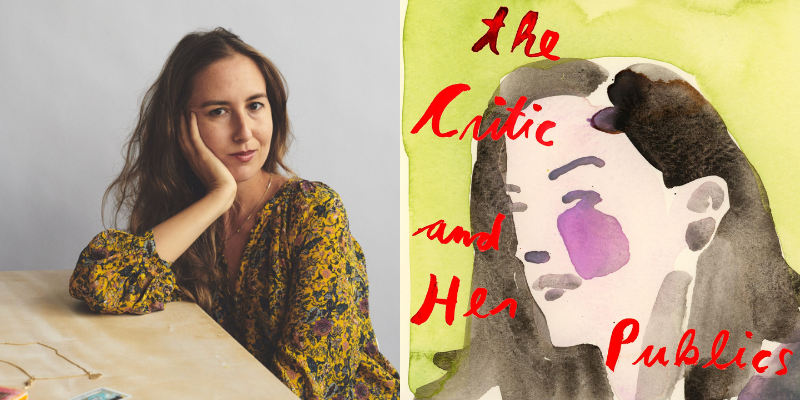
Carina del Valle Schorske on Putting Rhythms into Prose
In Conversation with Merve Emre on The Critic and Her Publics
The Critic and Her Publics is a live interview series that asks the best and most prominent critics working today to perform criticism on the spot, on an object they’ve never seen before. It’s a glimpse into brilliant minds at work, performing their thinking, taking risks, and making spontaneous judgments, which are sometimes right and sometimes wrong.
Subscribe to The Critic and Her Publics, available wherever you get your podcasts!
From the episode:
Merve Emre: Carina del Valle Schorske is an essayist and translator who received her PhD in English and Comparative Literature from Columbia University. Her essay collection The Other Island will be out from Riverhead Books this spring and her writing has appeared in The Believer, The Point, Virginia Quarterly Review, and The New York Times Magazine, where she is a contributing writer. While I hesitate to use the word “delicious” to describe anything other than food, Carina has written two delicious essays. The first, which won a National Magazine Award, is about Covid grief and post-apocalyptic dance floors. “In Plato’s “Protagoras,” Socrates argues that dancing girls have no place in philosophical gatherings,” she writes. She then proceeds to prove Socrates wrong, by weaving together social dance, journalism, and a philosophy of visibility. The second, a profile of Bad Bunny, that appeared in both English and Spanish does what the ideal profile should do. It takes an enigmatic, alluring, and successful cultural figure, and situates them in a particular time, a place, a genre, and a language. It provides us with not only an account of a person, but a panorama of history.
For a full transcript and details of the piece Carina del Valle Schorske responded to, head over to the New York Review of Books.
*
Carina del Valle Schorske is a writer, translator, and wannabe backup dancer. Her debut essay collection, The Other Island, is forthcoming from Riverhead Books. It was recently awarded a Whiting Creative Nonfiction Grant. She writes about Caribbean culture, literary politics, diasporic dramas, and the songs she can’t stop singing to herself. Her essays have been published many places including The Believer, The Cut, The Point, and the New York Times Magazine, where she is now a contributing writer. As a translator, she focuses on Puerto Rican poetry, especially the work of Marigloria Palma. Her own poetry has been featured in a variety of small journals and anthologies, and supported by fellowships from CantoMundo, MacDowell, and the Bread Loaf Writers’ Conference.
_________________________________
The Critic and Her Publics
Hosted by Merve Emre · Edited by Michele Moses · Music by Dani Lencioni · Art by
Leanne Shapton
Sponsored by the Shapiro Center for Creative Writing and Criticism at Wesleyan University, New York Review of Books, Lit Hub, and Knopf
The Critic and Her Publics
The best and most prominent critics working today perform criticism on the spot, on an object they’ve never seen before. It’s a glimpse into brilliant minds at work as they perform how to think about art and culture. From the New York Review of Books and Literary Hub, The Critic and Her Publics is a limited series hosted by Merve Emre.



















